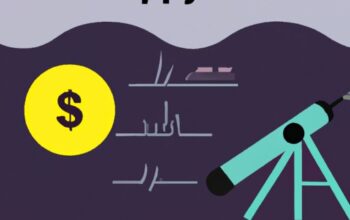Quantum mechanics, often regarded as the crown jewel of modern physics, delves into the enigmatic behavior of matter and energy at microscopic scales. It challenges our classical intuitions and raises tantalizing questions about the fundamental nature of reality. What does it mean to be a quantum mechanics physicist in a world filled with paradoxes, complexities, and groundbreaking discoveries? As we journey through this fascinating landscape, we will move beyond Schrödinger’s cat and explore the multifaceted experiences of those who navigate the quantum realm.
To commence, one might pose a playful yet profound question: What if reality is not as deterministic as we have long believed? This inquiry underpins the essence of quantum mechanics. Unlike classical mechanics, where the future state of a system can be predicted with precision given initial conditions, quantum mechanics introduces a probabilistic framework. The mere act of measurement influences the system, collapsing the wave function and revealing outcomes that appear random yet are governed by intricate mathematical formulations.
The primary challenge for physicists lies not just in mastering the mathematics of quantum mechanics but also in reconciling the philosophical implications of their findings. For example, consider the concept of superposition, wherein particles exist simultaneously in multiple states until observed. This principle suggests that reality is not merely a collection of fixed properties but an elaborate tapestry of potentialities. Navigating the implications of this theory can be both exhilarating and disconcerting, as physicists grapple with questions about the nature of consciousness, observation, and reality itself.
At the forefront of quantum mechanics is the concept of entanglement, a phenomenon Einstein famously referred to as “spooky action at a distance.” When particles become entangled, the state of one particle becomes inherently linked to the state of another, regardless of the spatial separation between them. This challenges classical notions of locality and causality, raising questions about the interconnectedness of all things. For quantum physicists, the challenge lies in designing experiments that test and elucidate the laws of entanglement, creating a deeper understanding of the universe’s underlying fabric.
The intricacies of quantum theory extend to practical applications as well, particularly in the realm of quantum computing and quantum cryptography. These burgeoning fields promise to revolutionize technology by harnessing the principles of superposition and entanglement. Quantum computing, for instance, seeks to process information in ways that classical computers cannot, potentially solving problems that remain intractable today. Thus, a quantum mechanics physicist must not only be proficient in theoretical constructs but also adept in experimental techniques and interdisciplinary collaboration spanning computer science and information theory.
But what drives an individual to pursue a career in quantum mechanics? The answer often lies in an insatiable curiosity about the universe. Observing the peculiar behaviors of particles during experiments can evoke a sense of wonder reminiscent of the naïve curiosity experienced in childhood. Each discovery, whether it be the validation of quantum tunneling or the experimental realization of Bell’s theorem, unveils layers of complexity and beauty in the natural world. Yet, with this excitement comes the inevitable frustration of grappling with counterintuitive results and the realization that not all mysteries can be unraveled.
Collaboration plays a pivotal role in the life of a quantum physicist. Working within interdisciplinary teams allows for the amalgamation of diverse perspectives. It fosters an environment where quantum theories can be scrutinized, tested, and expanded. Conferences and symposiums provide arenas for the exchange of ideas, enabling researchers to challenge one another and refine their understanding collaboratively. For those immersed in adopting a quantum framework, engaging with peers from various fields–be it philosophy, computer science, or mathematics–can lead to new insights and foster a holistic appreciation of theoretical constructs.
Moreover, mentoring and educating the next generation of physicists serves as a gratifying aspect of this journey. Theory, amid its deep complexities, often requires effective communication. The ability to distill abstract concepts into accessible analogies allows for meaningful mentorship experiences. Whether through lectures, workshops, or informal discussions, clarity in communication can ignite interest in budding scientists—instilling in them a desire to explore the intricacies of quantum mechanics.
Despite the exhilarating prospects, the path of a quantum mechanics physicist is not devoid of challenges. The field constantly evolves, requiring continuous learning and adaptation. With new discoveries and theories emerging at a rapid pace, maintaining relevance necessitates intellectual agility. Moreover, the pressure to publish, secure funding, and navigate bureaucratic hurdles often weighs heavily on researchers.
In conclusion, being a quantum mechanics physicist is a richly rewarding endeavor that transcends mere calculations and theories. It embodies a quest to uncover the secrets of the universe, where paradoxes and uncertainties coexist with profound truths. As individuals strive to push the boundaries of human understanding, they must confront not only the challenges posed by the intricacies of quantum mechanics but also the philosophical ramifications of their discoveries. The question remains: as we delve deeper into the quantum realm, how will we reconcile the dazzling and often perplexing nature of reality? This ongoing inquiry underscores the essence of the physicist’s journey—an exploration into the profound depths of existence, far beyond the confines of classical understanding.








